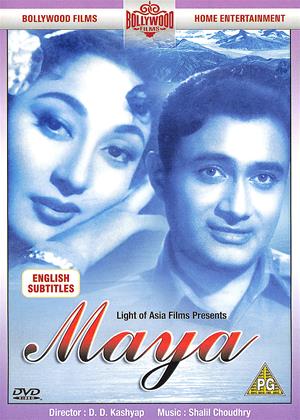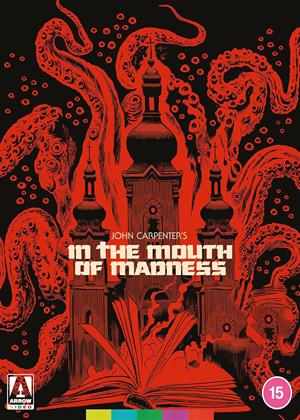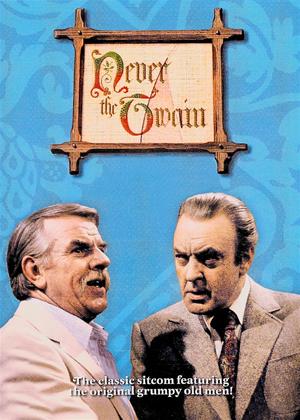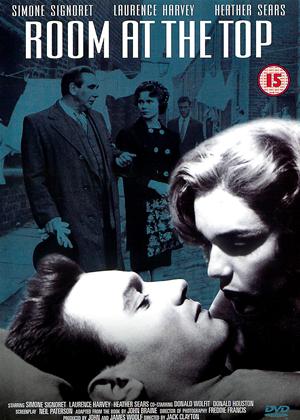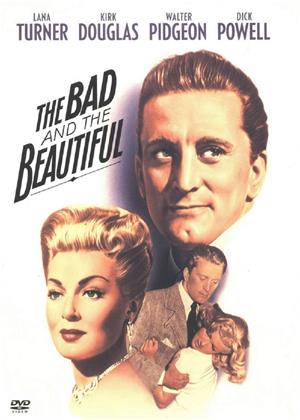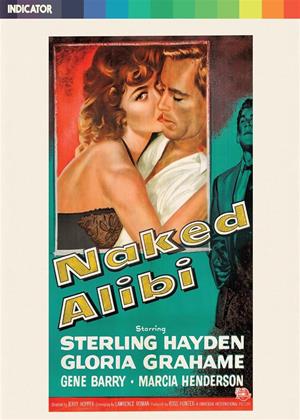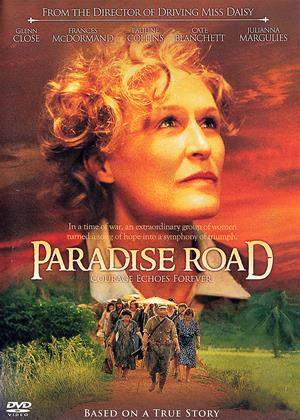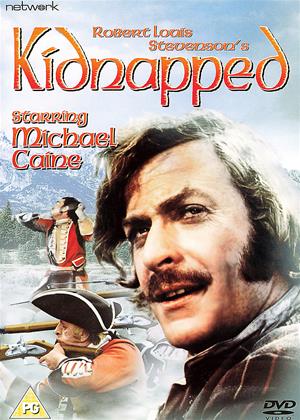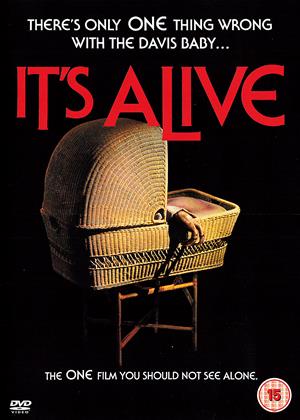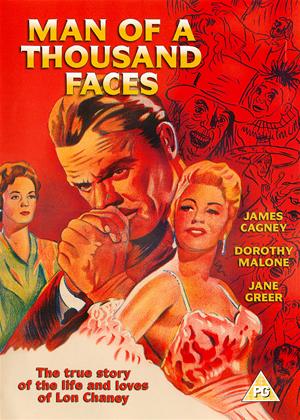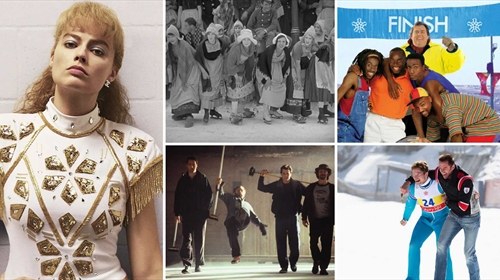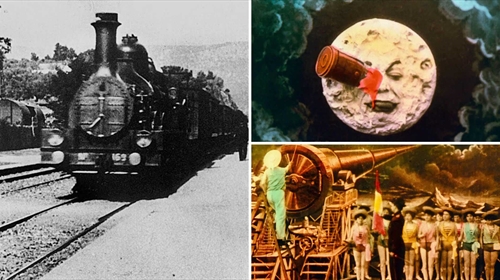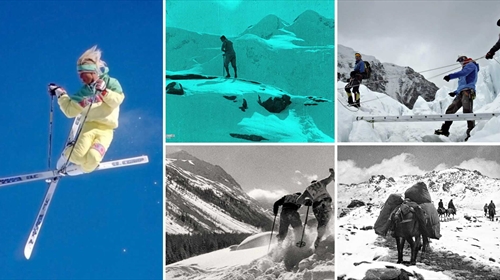One hundred years ago, cinema was still a silent medium. It would remain so for another four years. But several stars who would grace the silver screen during its golden age were born in 1923. We induct those born between July and December here, along with the odd director, editor, and cinematographer, into the Cinema Paradiso Centenary Club.

Before we introduce you to 1923's new arrivals, let's look back at some of the classic films that were released during the year, as well as some of the stories that made the headlines. It's hard to remember that features had only been the norm for eight years in Hollywood. Boasting the biggest set ever constructed to that time, Cecil B. DeMille's The Ten Commandments was one of the year's major hits. DeMille would revisit the story of Moses in The Ten Commandments (1956), the year before James Cagney headlined Joseph Pevney's speculative biopic, Man of a Thousand Faces (1957). In his day, Lon Chaney had been the master of movie disguise and he's at his distinctively unrecognisable best as Quasimodo in Wallace Worsley's The Hunchback of Notre Dame.
Also available from Cinema Paradiso with a single click is Jean Epstein's Coeur fidèle (aka The Faithful Heart), a moody drama about barmaid Gina Mares that anticipates the Poetic Realist style explored in one of our Brief History articles. Frustratingly, compatriot Abel Gance's seven-hour epic, La Roue (aka The Wheel), isn't rentable, but we urge you to take a look at Charlie Chaplin's A Woman of Paris, in which Edna Purviance excels as the country girl caught between aspiring artist Carl Miller and the wealthy Adolphe Menjou.
Although he had a bit part, Chaplin limited his comic output to The Pilgrim. Buster Keaton was more prolific, with The Balloonatic, The Love Nest, and The Three Ages being joined by the masterly Our Hospitality. The first three can be found on Buster Keaton: The Complete Shorts 1917-23. However, the Great Stone Face and the Little Tramp were both upstaged by Harold Lloyd, who literally took peril slapstick to a new level, as he hung from a high-rise clock face in Fred Newmeyer and Sam Taylor's Safety Last!
While Max and Dave Fleischer were toiling over the first animated documentary, The Einstein Theory of Relativity, two more brothers, Walt and Roy O. Disney, were founding their own cartoon studio in Hollywood. Earlier in the year, Walt had formed the Laugh-O-Gram Studio with Ub Iwerks, launching their venture with Alice's Wonderland, which starred four year-old Virginia Davis. However, he persuaded Iwers and Davis to swap Kansas City for Los Angeles and, well, you know the rest.
JULY

Born on 6 July 1923, Cathy O'Donnell only had a short career, but it was full of interesting projects. Brother-in-law William Wyler directed her in The Best Years of Our Lives (1946), Detective Story (1951), and Ben-Hur (1959), while she made The Woman's Angle (1952) and Eight O'Clock Walk (1954) in Britain. Excelling opposite Farley Granger in Nicholas Ray's noir, They Live By Night (1948), O'Donnell also teamed with James Stewart in Anthony Mann's psychological Western, The Man From Laramie (1955).
O'Donnell died in 1970, but Dale Robertson (14 July) lived to be 89. Renowned as one of the best horsemen in Hollywood, he got a start in Westerns alongside Randolph Scott in Fighting Man of the Plains (1949), in which he played Jesse James, and Cariboo Trail (1950). Few of his 20th Century-Fox assignments have been released on disc, but Robertson moved into television shortly after going freelance in Sitting Bull (1954). Best known for Tales of Wells Fargo (1957-62), he was part of the original cast of Dynasty (1981-89), only to be written out at the end of the first season.
We pay tribute to the pioneering Bulgarian woman director Binka Zhelyazkova (15 July) on the off-chance an enterprising label might release such unsung gems as The Tied-Up Balloon (1967) and The Swimming Pool (1977). But we move on to British dependable Michael Medwin, who was born on 18 July and lived to be 96. Getting a start in the Anna Neagle vehicles Piccadilly Incident (1946) and The Courtneys of Curzon Street (1947), Medwin became a prolific character actor. Type his name into the Cinema Paradiso searchline and you won't be disappointed by anything you find, whether it's period pieces like Trottie True and The Queen of Spades (both 1949) or darker fare like The Teckman Mystery (1954) and A Hill in Korea (1956).

Medwin made the most of occasional leads in Guy Hamilton's The Intruder (1953) and followed an acclaimed stint as wide-boy Corporal Springer in the hit sitcom, The Army Game (1957-61), with undervalued items like Rattle of a Simple Man (1964). He formed a production company with Albert Finney that backed Lindsay Anderson's If... (1968) and O Lucky Man! (1973), as well as the Finney vehicles Charlie Bubbles (1968), Scrooge (1970), and Gumshoe (1971). Back on television, Medwin played radio boss Don Satchley in Shoestring (1979-80) before taking notable supports in Never Say Never Again (1983), Fanny and Elvis (1999), and The Duchess (2008).
Joining Ealing in 1942, Seth Holt (21 July) served as an editorial assistant on some of the studio's most important postwar pictures. He graduated to editor on brother-in-law Robert Hamer's The Spider and the Fly (1949) and cut Charles Crichton's The Lavender Hill Mob (1951) and Alexander Mackendrick's The Titfield Thunderbolt (1953) before producing The Ladykillers (1955). Debuting as a director with Nowhere to Go (1958), Holt worked on the hit TV series, Danger Man (1960-61) before returning to features with Taste of Fear (1961), Station Six-Sahara (1963), and The Nanny (1965), which starred Bette Davis. Dogged by misfortune and alcoholism, however, Holt died on the set of Hammer's Blood From the Mummy's Tomb (1971) without really fulfilling his potential.
Born the same day was Queenie Watts. a Cockney icon who first made an impression in Joan Littlewood's Sparrows Can't Sing (1963). She sang in the bar scenes in Alfie (1966) and Half a Sixpence (1967), brought authenticity to Ken Loach's Poor Cow (1967) and Up the Junction (1968), and ran tight ships in All Coppers Are... (1972) and Schizo (1976). When not popping up in softcore romps like Intimate Games (1976), Come Play With Me (1977), and Confessions From the David Galaxy Affair 1979), Watts partnered Arthur Mullard in TV's Romany Jones (1972-75) and Yus, My Dear (1976), as well as Holiday on the Buses (1973).
Paying passing respects to Mukesh (22 July), the playback legend who sang for such Bollywood stars as Raj Kapoor, Manoj Kumar, Feroz Khan, Sunil Dutt, and Dilip Kumar, we move on to Estelle Getty (25 July), who won an Emmy and a Golden Globe for playing Sophia Petrillo in the much-loved sitcom, The Golden Girls (1985-92). Cinema Paradiso users can also see her as Eric Stoltz's grandmother in Mask (1985), the kindly department store owner in Mannequin (1987), Sylvester Stallone's mother in Stop! Or My Mom Will Shoot (1992), and Jonathan Lipnicki's grandma in Stuart Little (1999).
AUGUST
Born in Chicago on 3 August 1923, Jean Hagen was Patricia Neal's university roommate before making her screen debut alongside Katharine Hepburn and Spencer Tracy in George Cukor's Adam's Rib (1949). She excelled as ruthless femme fatale Doll Conover in John Huston's The Asphalt Jungle (1950), but her Oscar nomination came for her inspired display as silent siren Lina Lamont struggling with the advent of talkies in Gene Kelly and Stanley Donen's Singin' in the Rain (1952). Noir remained a speciality, with No Questions Asked (1951) being followed by Robert Aldrich's The Big Knife (1955). But a drinking problem limited Hagen's opportunities, even though she was on form in Disney's The Shaggy Dog (1957), Ray Milland's Panic in Year Zero (1962), and Paul Henreid's Dead Ringer (1964), which paired her with Bette Davis.
Having left South Africa, Moira Lister (6 August) caught the eye as Kitty Feathers in Lewis Allen's So Evil My Love (1948) and landed herself a berth at Ealing. Here, she took supporting roles in Another Shore, Once a Jolly Swagman (both 1948), A Run For Your Money (1949), and Pool of London (1951), while also appearing up the cast in Grand National Night, The Limping Man, and The Cruel Sea (all 1953). She showed her comic mettle in the radio version of Hancock's Half Hour (1954-55) and took a charming cameo on William Fairchild's Coronation comedy, John and Julie (1955). As stage and TV came to dominate, film outings like The Yellow Rolls-Royce (1964), Joey Boy (1965), Stranger in the House (1967), and Not Now Darling (1973) became rarer.

Offered a contract by a talent agent while crossing a road in Los Angeles, Rhonda Fleming (10 August) debuted in the B Western, In Old Oklahoma (1943). However, her performances in the thriller trio of Alfred Hitchcock's Spellbound (1945), Robert Siodmak's The Spiral Staircase (1946), and Jacques Tourneur's Out of the Past (1947) raised her profile. Her star rose further when she was dubbed 'Queen of Technicolor' after co-starring with Bing Crosby in A Connecticut Yankee At King Arthur's Court (1949). However, producers were more interested in how Fleming photographed in colour and 3-D rather than the calibre of her roles. She was paired with John Payne in Tennessee's Partner and Slightly Scarlet (1956), but a shortage of projects like Fritz Lang's While the City Sleeps (1956) and John Sturges's Gunfight At the OK Corral (1957) sent her into a 60-year 'semi-retirement' in 1960.
TV veteran Alice Ghostley (14 August) started coming into her own around this time. She had roles in Robert Mulligan's To Kill a Mockingbird (1962) and Mike Nichols's The Graduate (1967), but she will be best remembered as Esmeralda the fumbling witch in Bewitched (1969-72). Later roles came in With Six You Get Eggroll (1968), Gator (1976), Rabbit Test (1978), and The Odd Couple II (1998), with the pick being as Rydell High metalshop teacher, Mrs Murdock in Grease (1978).
First finding fame as a child singer, Rose Marie (15 August) made a Vitaphone sound short in 1929 and co-starred with W.C. Fields in International House (1933). She would later appear in pictures like Dead Heat on a Merry-Go-Round (1966) and Shriek If You Know What I Did Last Friday the 13th (2000). Rose-Marie also voiced Norma Bates in Gus Van Sant's remake of Psycho (1998). But her celebrity rests on her stellar sitcom work as Sally Rogers in The Dick Van Dyke Show (1961-66) and Myrna Gibbons in The Doris Day Show (1968-73).

Although he first came to attention in Michael Roemer's Nothing But a Man (1964), Julius Harris (17 August) established himself in such blaxploitation flicks as Super Fly, Shaft's Big Score (both 1972), Black Caesar (1973), and Friday Foster (1976). This led to his casting as the steel-armed Tee Hee opposite Roger Moore's 007 in Live and Let Die (1973) and Inspector Daniels in The Taking of Pelham One Two Three (1974). This busy period also saw Harris in King Kong (1976), Islands in the Stream, Alambrista! (both 1977), and Crimewave (1985), as well as lots of TV. Check the Cinema Paradiso searchline and get clicking.
Our last August centenarian is Richard Attenborough. But we'll save our celebration for a special feature around 29 August.
SEPTEMBER

Blink and you'd miss Peter Lawford (7 September) in many of his early films, including Mrs Miniver (1942), Above Suspicion (1943), and Cluny Brown (1946). But a trio of Fred Astaire musicals, The Sky's the Limit (1943), Easter Parade (1948), and Royal Wedding (1951) smoothed his passage to MGM, where Son of Lassie (1945) made him a star. While he was kept busy, however, his films from this period haven't passed the DVD endurance test, although Cinema Paradiso users can enjoy Lawford alongside Judy Holliday and Jack Lemmon in It Should Happen to You (1954). By the time he figured in Oceans 11 (1960), he was best known as a member of Frank Sinatra's Rat Pack and the brother-in-law of President John F. Kennedy. Indeed, he introduced Marilyn Monroe at the infamous birthday gala in 1962. Amidst much tele-guesting, were such later big-screen efforts as A Man Called Adam (1966) and Rosebud (1975).
Born on 9 September, Cliff Robertson rubbed shoulders with Lawford in Corvette K-225 (1943) and went on to play JFK in PT 109 (1963). Emerging from the Actors Studio, he made an impact in Picnic (1955), but rather marked time in All in a Night's Work and Underworld USA (both 1961). He soared in 633 Squadron and revealed greater nuance in The Best Man (both 1964). But, having amused in The Honey Pot (1967), it was his performance in Charly (1968), as an intellectually challenged man whose IQ is artificially boosted, which earned Robertson the Best Actor Oscar. His subsequent choices didn't work out - he turned down Dirty Harry and Straw Dogs (both 1971) - although Too Late the Hero (1970) and The Great Northfield Minnesota Raid (1972) are well worth watching. So are his supporting turns in Three Days of the Condor (1975), Obsession (1976), and Escape From L.A. (1996). But his career was derailed in 1977 after he became unwittingly involved in an embezzlement scandal at Columbia, although he bowed out in style with three excursions as Uncle Ben in Sam Raimi's Spider-Man (2002), Spider-Man 2 (2004), and Spider-Man 3 (2007).
Betsy Drake hated Hollywood and only agreed to join RKO because boyfriend Cary Grant insisted. They co-starred in Every Girl Should Be Married (1948) and married the following year, reuniting in Room For One More (1952). However, Drake ventured out on her own in Will Success Spoil Rock Hunter? (1957) and Next to No Time (1958), in which she struck up a rapport with Kenneth More. She wrote Houseboat (1958) as a vehicle for herself and Grant, only for him to insist on casting Sophia Loren after they had started an affair while shooting The Pride and the Passion (1957). After the divorce, Drake quit showbiz, returning only to ponder her marriage in Cary Grant: A Class Apart (2004).
Also born on 11 September was Alan Badel, a Mancunian who partially lost his hearing fighting after D-Day. Having made his name on stage, he took varied film roles in Will Any Gentleman? (1953), Three Cases of Murder (1955), Bitter Harvest, This Sporting Life (both 1963), and Children of the Damned (1964). Although an accomplished villain, he cut a dash as Edmond Dantès in a BBC adaptation of The Count of Monte Cristo (1964) and mined the realities of political power in Bill Brand (1976). Between Arabesque (1966) and The Day of the Jackal (1973), he impressed in Otley (1969) and Luther (1973) and departed far too soon after The Riddle of the Sands (1979) and Shogun (1980).
One of the leading lights in Bollywood history, Dev Anand was born on 26 September 1923. Cinema Paradiso can offer such early acting assignments as Namoona (1949), Nirala (1950), C.I.D. (1955), Jaali Note (1960), and Maya (1961), as well as Jewel Thief (1967), which he produced and the self-directed Hare Rama Hare Krishna (1971). Known for the speed of his delivery and his head nodding while speaking, Anand worked on over 100 films, including such later offerings as Chhupa Rustam, Joshila (both 1973), and Man Pasand (1980).

Prolific character actor William Windom (28 September) first impressed as Gregory Peck's courtroom adversary in To Kill a Mockingbird. But, while he made pictures like The Detective (1968) and The Mephisto Waltz (1971), he was most effective on television (hit the searchline to see what we mean), notably abetting Jessica Fletcher (Angela Lansbury) as Dr Seth Hazlitt in 53 episodes of Murder, She Wrote (1984-95). Among Windom's other movies were Uncle Buck (1989), Sommersby (1993), and Clint Eastwood's True Crime (1999).
Cinematographer William A. Fraker (29 September) worked with Eastwood on Paint Your Wagon (1969). He was nominated for an Oscar five times, for Looking For Mr Goodbar (1977), Heaven Can Wait (1978), 1941 (1979), WarGames (1983), and Murphy's Romance (1985). But we reckon he was more inspired on Rosemary's Baby and Bullitt (both 1968). Fraker also directed The Legend of the Lone Ranger (1981) and shot additional footage for One Flew Over the Cuckoo's Nest (1975) and Close Encounters of the Third Kind (1977). He speaks eloquently about his art along with several of his peers in the essential documentary, Visions of Light (1992).
OCTOBER
Born on 4 October 1923, Charlton Heston was working in television when he was recruited for William Dieterle's film noir, Dark City (1950). He lucked out in landing the lead in Cecil B. DeMille's circus saga, The Greatest Show on Earth, which somehow won the Academy Award for Best Picture, and, having confirmed his star status opposite Jennifer Jones in King Vidor's Ruby Gentry (both 1952), Heston demonstrated his aptitude for action roles in Pony Express (1953) and The Naked Jungle (1954).
In truth, he was drifting when DeMille noticed his resemblance to Michelangelo's statue of Moses and cast him in The Ten Commandments, which earned him a Golden Globe nomination. It was back to Westerns with Three Violent People (both 1956) and The Big Country before Orson Welles cast him as Mexican lawyer Miguel Vargas in Touch of Evil (both 1958). Despite its audacious opening sequence shot, this steamy noir was upstaged by William Wyler's adaptation of Lew Wallace's Ben-Hur (1959), which won 11 Oscars, including Best Actor for Heston.

He remained in epic mode for El Cid (1961), 55 Days in Peking (1963), The War Lord (1965), and Khartoum (1966), in between which he took the lead in Sam Peckinpah's Major Dundee and played John the Baptist in George Stevens's The Greatest Story Ever Told and Michelangelo painting the Sistine Chapel in Carol Reed's The Agony and the Ecstasy (all 1965). Having marked time in Counterpoint (1967) and Will Penny, Heston proved a muscular astronaut in The Planet of the Apes (both 1968) and a vocal supporter of the Civil Rights cause.
Between Shakespearean outings in Julius Caesar (1970) and Antony and Cleopatra (1972), Heston returned to the great outdoors in The Call of the Wild (1972) and headlined the intriguing sci-fi duo of The Omega Man (1972) and Soylent Green (1973). Alongside double duty as Cardinal Richelieu in Richard Lester's The Three Musketeers (1973) and The Four Musketeers (1974), however, Heston became associated with the disaster movie by headlining Earthquake, Airport 1975 (both 1974), and Two Minute Warning (1976).
Refusing to bow to age, Heston kept taking action man roles in Midway (1976), Gray Lady Down (1978), and Mother Lode (1982), which he co-directed with his son, Fraser. He cameo'd as Henry VIII in The Prince and the Pauper (1977), risked an Egyptian curse in The Awakening (1980), and wheeler-dealed in the 1920s political drama, Chiefs (1983). Following a rare return to television in The Colbys (1985-87), Heston fronted such mediocre fare as Proud Men (1987), Solar Crisis, and Treasure Island (1990), in which he essayed Long John Silver for son Fraser.
By now known as much for his advocacy for the gun lobby as for his acting, Heston won an Emmy for the documentary, The Mystery of the Sphinx (1993). But he was essentially a glorified guest star in Tombstone, Wayne's World 2 (both 1993), True Lies, In the Mouth of Madness (both 1994), Get Shorty (1995), Hamlet (1996), Any Given Sunday (1999), Town and Country, The Order, and Planet of the Apes (all 2001), in which he played a dying chimpanzee. He also narrated Disney's Hercules (1997) and Michael Bay's Armageddon (1998). So, despite the tailing off, it was still quite a career.

A couple of years ago, Cinema Paradiso paid tribute to Glynis Johns and Angela Lansbury in Glynis & Angela: Ninetysomething Marvels. Let's hope Johns reaches her century on 5 October. Born four days later in Plymouth, Donald Sinden got to know Johns very well, as her co-star in The Beachcomber, Mad About Men (both 1954), and Josephine and Men (1955). Debuting in the Ealing naval classic, The Cruel Sea, Sinden made such an impression that MGM recruited him to co-star with Clark Gable, Grace Kelly, and Ava Gardner in John Ford's Mogambo (both 1953). Rather than remaining in Hollywood, however, he signed a seven-year deal with Rank and became a star as the womanising Benskin in Ralph Thomas's Doctor in the House (1954) and Doctor At Large (1957). He would later be a wolfish patient in Gerald Thomas's Twice Round the Daffodils (1962).
Viewed as something of a second-string Dirk Bogarde (with whom he co-starred in Simba, 1955), Sinden alternated capably between comedies like A Day to Remember (1953), You Know What Sailors Are (1954), An Alligator Named Daisy (1955), Rockets Galore!, The Captain's Table (both 1958), and Your Money or Your Wife (1960), war films like Above Us the Waves (1955), The Black Tent (1956), and Operation Bullshine (1959), and such crime thrillers as Tiger in the Smoke, Eyewitness (both 1956), and Mix Me a Person (1962).
His plummy tones seemed out of place in kitchen sink and Swinging Sixties pictures, however, and Sinden took refuge in the theatre. He also found a niche in sitcoms like Father Dear Father (1968-70), Two's Company (1975-79), and Never the Twain (1981-91), in which he jousted with Windsor Davies. There were still occasional film outings in Villain (1971), The National Health, The Day of the Jackal (both 1973), The Island At the Top of the World (1974), and Run For Your Wife (2012). But he remained a familiar face on the small screen, notably playing Martin Shaw's mentor, Sir Joseph Channing, in Judge John Deed (2001-07).

As is clear from the Cinema Paradiso searchline evidence, Patrick Jordan (10 October) was a jobbing actor who didn't always find his name in the credits. He tended not to survive long in war films like The Battle of the River Plate (1956), The Longest Day (1962), The Heroes of Telemark (1965), Play Dirty (1969), and Too Late the Hero (1970). When not popping up in TV series like Randall and Hopkirk (Deceased) (1969-70) and Terry and June (1979-87), Jordan found himself on either side of the law in such features as The Frightened City (1961), Dilemma (1962), Robbery (1967), Perfect Friday (1970), and Assault (1971). Much to his chagrin, he opted for a flat fee rather than a royalty for playing Imperial Officer Cass in Star Wars (1977).
Also born on 10 October was Nicholas Parsons. Ususally remembered for presenting Just a Minute (1967-2019) on BBC radio and Sale of the Century (1971-83) on ITV, Parsons was also a deft comic actor. In addition to stooging on The Arthur Haynes Show (1956-66) and The Benny Hill Show (1968-71), he proved a reliable ensemble player in screen comedies like Simon and Laura (1955), Brothers in Law (1957), Happy Is the Bride (1958), Too Many Crooks (1959), Doctor in Love (1960), and The Wrong Box (1966). He also ventured into crime for The Long Arm (1956) and Murder Ahoy (1964), while also voicing Tex Tucker in Four Feather Falls (1960), an experience he recalled in the Gerry Anderson documentary, Filmed in Supermarionation (2014). Sending himself up in the Mr Jolly Lives Next Door (1988) episode of The Comic Strip Presents... (see The Complete Collection ), Parsons also appeared alongside Sylvester McCoy in Doctor Who: The Curse of Fenric (1989) and voiced Dagon, Lord of the Files in Good Omens (2019).
Arriving in Hollywood as a teenager, Linda Darnell (16 October) formed a partnership with Tyrone Power on such Fox features as The Mark of Zorro (1940) and Blood and Sand (1941). However, studio chief Darryl F. Zanuck punished her with poor projects and suspensions for refusing his advances and she went uncredited as the Virgin Mary alongside Oscar winner Jennifer Jones in The Song of Bernadette (1943). Her fortunes changed, however, after a magazine named her one of the four most beautiful women in Hollywood (along with Hedy Lamarr, Gene Tierney, and Ingrid Bergman) and she excelled as a femme fatale on loanout to Douglas Sirk for Summer Storm (1944).
Having teamed with Dick Powell in René Clair's It Happened Tomorrow (1944), Darnell again revealed a darker side in Otto Preminger's Fallen Angel (1945) before being forced to don yellowface to play Tuptim alongside Irene Dunne and Rex Harrison in Anna and the King of Siam. John Ford resented her inclusion in My Darling Clementine (both 1946), but her casting in Preminger's big-budget adaptation of Kathleen Winsor's bodice-ripper, Forever Amber (1947), made national headlines.

Despite her high hopes, the picture did little for Darnell's reputation, although she switched from Preston Sturges's screwball, Unfaithfully Yours (1948), to Joseph L. Mankiewicz's melodrama, A Letter to Three Wives (1949), with consummate ease. She reunited with the latter for the noir classic, No Way Out (1950), but problems with weight and alcohol exacerbated her issues with the front office and neither Saturday Island nor Blackbeard the Pirate (both 1952) did much for her morale. With her career long over, Darnell's sad life ended in a fire caused by a cigarette in 1965.
Controversy also dogged Polish director Walerian Borowczyk (21 October), who was based in Paris from 1959 and was regarded in some quarters as a wayward genius who sold his soul to smut. As is clear from Arrow's Walerian Borowczyk: Short Films and Animation, there is much to amuse, amaze, and marvel at in an unmissable selection. However, a sense of claustrophobia informs Goto, Isle of Love (1969), while jealousy drives Michel Simon in the compellingly bleak 13th-century saga, Blanche (1971).
Featuring Fabrice Luchini and Pablo Picasso's daughter, Paloma, Immoral Tale (1974) tackled a range of sexual taboos, as did The Beast (1975), which was regarded by some as arthouse pornography. There's always more than meets the eye in a Borowczyk picture, however, as he went on to prove in The Story of Sin (1975), a mischievous, sometimes sensually surreal treatise on the abuse of power and moral authority. Wife Ligia Branice returned for Behind Convent Walls (1977), a radical reinterpretation of a Stendahl novel that was more nunsploitation than art. More innovative was The Strange Case of Dr Jekyll and Miss Osbourn (1981), a variation on Robert Louis Stevenson's oft-filmed novella. Yet, even in such low-grade material as Emmanuelle 5 (1987) and Love Rites (1988), Borowczyk retained the striking visual sense that has prompted many to champion his cause as a misunderstood maverick.
William Campbell and Herschel Bernardi shared a birthday on 30 October. Debuting in The Breaking Point (1950), the former found a niche in Westerns like Man Without a Star, Backlash (both 1956), and The Sheriff of Fractured Jaw (1958). However, he also got to lip sync with Elvis Presley in Love Me Tender (1956) before headlining Francis Ford Coppola's directorial breakthrough, Dementia 13 (1963). In addition to two cult horrors, Robert Aldrich's Hush...Hush, Sweet Charlotte (1964) and Mario Bava's Blood Bath (1966), Campbell also guested twice in the original series of Star Trek (1968-69).

Having started out in the Yiddish films of the estimable Edgar G. Ulmer, Bernardi's career stalled when he was blacklisted during the HUAC scare, an experience he revisited in Martin Ritt's The Front (1976). He revived his fortunes as Lieutenant Jacoby in the cult TV series, Peter Gunn (1958-60), for which he received an Emmy nomination. Although he was mostly seen on the small screen, Bernardi also figured in features like Billy Wilder's Irma la Douce (1963), Norman Jewison's Send Me No Flowers (1964), and Joseph L. Mankiewicz's The Honey Pot (1967).
NOVEMBER
Losing his mother as a boy, Donald Houston (6 November) was raised by a grandmother, along with his younger brother, Glyn, who also became an actor. Leaving the pit, Donald served with the RAF before trying his luck on the stage. Moving into films, he got to use his Welsh accent in Run For Your Money and show off his physique opposite Jean Simmons in The Blue Lagoon (both 1949), which really should be on disc. Houston soon found himself in prominent roles in British pictures as different as Small Town Story (1953), The Girl in the Picture (1957), Room At the Top, and The Man Upstairs (both 1958). Although he bristled in uniform in Yangtse Incident (1957), 633 Squadron, and Where Eagles Dare (1968), he was also a capable comic, as he proved in Doctor in the House, Twice Round the Daffodils, Doctor in Distress, and Carry On Jack (both 1963). Between the horrors Maniac (1963) and Tales That Witness Madness (1973), he played Dr Watson to John Neville's Sherlock Holmes in A Study in Scarlet (1965).
Brighton-born Derek Francis (7 November) was a prolific character actor who amassed 186 screen credits in just 25 years. Often cast as cops, clerics, and councillors, he cropped up in six Carry Ons, notably Doctor (1967) and Abroad (1972). Roger Corman had cast him as Lord Trevanion in The Tomb of Ligeia (1964), while he also played Nero in an 1965 episode of Doctor Who. He made a particularly splendid foil to Derek Nimmo as Father Bernard in Oh Brother! (1968-70). But nothing was off limits to Francis, with a visit to the Cinema Paradiso searchline revealing such eclectic films as Say Hello to Yesterday (1967), The Statue (1971), To the Devil a Daughter (1976), and The Wicked Lady (1983).

New Yorker Richard Venture (12 November) reached Broadway via a wartime stint in the US Navy. His film career kicked off with Paul Newman's The Effect of Gamma Rays on Man-in-the-Moon Marigold (1972), but he rarely rose above minor character roles, even though he featured in such Best Picture candidates as All the President's Men (1976), Missing (1982), and Scent of a Woman (1992), in which he played Oscar winner Al Pacino's brother. Among his more memorable turns were as Peter Sellers's valet in Being There (1979) and the suicidal cop opposite Steve McQueen in The Hunter (1980). Having also become a TV regular, Venture died at the age of 94 after making a final film appearance as violent game show contestant Franklin James in Series 7: The Contenders (2001).
Born in Tampico, Mexico on 13 November, Blanca Rosa Henrietta Stella Welter Vorhauer had planned to become a doctor before she met Errol Flynn. He persuaded her to come to Hollywood, where Louis B. Meyer's secretary spotted her and she was offered a contract at MGM. Using the name Linda Christian, she had a dual claim to fame, as Johnny Weissmuller's last jungle companion in Tarzan and the Mermaid (1948) and the first Bond girl in the 1954 tele-version of Casino Royale, which cast Barry Nelson as 007 to her Valerie Mathis. She also married Tyrone Power (1949-56) and missed out on an Oscar when he refused the offer for them to play the roles taken by Montgomery Clift and Donna Reed in Fred Zinnemann's From Here to Eternity (1953). Catch her in Show Boat (1951), The Devil's Hand (1961), and An Out For Oscar ' in The Alfred Hitchcock Hour (1962-65).
Having debuted as an actor in Waterloo Road (1945), Peter Hammond (15 November) switched from Harry Huggett in Holiday Camp (1947) to Peter Hawtrey in Here Come the Huggetts (1948), Vote For Hugge, and The Huggetts Abroad (both 1949), which can all be rented from Cinema Paradiso on The Huggetts Collection. He would give co-star Petula Clark her first kiss in Dance Hall, as well as featuring in Morning Departure (both 1950), Father's Doing Fine (1952), Flannelfoot (1953), and X: The Unknown (1956).
Moving into television, Hammond pushed for a chance to direct and made such an impact with Armchair Theatre (1956-74) and The Avengers (1961-69) that he won a BAFTA in 1965. Unwilling to shoot the latter on film instead of video, he made a rare foray into features with the wonderful Spring and Port Wine (1970). But Hammond was a telly man at heart and he followed serials like Wuthering Heights and Our Mutual Friend (both 1980) with several cases for Jeremy Brett as Sherlock Holmes and John Thaw as Inspector Morse. See the Cinema Paradiso searchline fo details.

Becoming lifelong friends with Patricia Neal at university, Helen Horton (21 November) came to Britain on getting married. Famously, she took over (for a touring production) the role of Blanche Dubois that Vivien Leigh would reprise to Oscar-winning effect in Elia Kazan's A Streetcar Named Desire (1951) before taking on films like The Mark of the Hawk and Let's Be Happy (both 1957). The searchline reveals numerous small-screen credits, although Horton rarely made more than a single appearance in each show. Instead, try films like Endless Night (1972) and Phase IV (1974), in which she respectively plays Aunt Beth and Mildred Eldridge. And listen out for Mother, the computer aboard the Nostromo in Ridley Scott's Alien (1979), as Horton voiced it before playing Miss Henderson in Superman III (1983).
Having served with the Royal Canadian Air Force during the war, Arthur Hiller (22 November) relocated to California to direct episodes of TV series like Alfred Hitchcock Presents (1955-62) and Perry Mason (1957-66). His earliest features aren't on disc, even though most should be, but Cinema Paradiso members can see the atypical war picture, Tobruk (1966), which was Oscar-nominated for its visual effects. Much more Hiller were Neil Simon's The Out-of-Towners and Love Story (both 1970), an adaptation of Erich Segal's bestseller starring Ryan O'Neal and Ali MacGraw that earned seven nominations, including Best Picture and Best Director.
Reunions with Simon on Plaza Suiteand Paddy Chayefsky on The Hospital (both 1971) were followed by diverse offerings like The Man in the Glass Booth (1975), The In-Laws (1979), and Author! Author! (1982). But Hiller enjoyed most success in this period with Gene Wilder and Richard Pryor on Silver Streak (1976) and See No Evil, Hear No Evil (1989), Steve Martin on The Lonely Guy (1984), and Bette Midler and Shelley Long on Outrageous Fortune (1987). He rather lost his touch in later years, however, although Taking Care of Business (1990) and the baseball biopic, The Babe (1992), were infinitely better than the trainwreck that was An Alan Smithee Film: Burn Hollywood Burn (1997).
Born the same day, New Zealander Guy Doleman made a number of films in Australia before trying his luck in Hollywood. He was an uncredited detective in Alfred Hitchcock's Dial M For Murder (1954), but returned Down Under for Smiley (1956), The Shiralee (1957) - which is on Volume 5 of the Ealing Rarities Collection - and On the Beach (1959). Coming to Britain, Doleman worked with Michael Winner on The System (1964) before playing Colonel Lippe in Thunderball (1965) and Colonel Ross opposite Michael Caine in the Harry Palmer trilogy of The Ipcress File (1965), Funeral in Berlin (1966), and Billion Dollar Brain (1967). Doleman was also the first Number Two in The Prisoner (1967) and remained in television for the rest of his career.

Born in Bucharest on 23 November, Nadia Gray left for Paris after the Communist takeover of Romania. Although she made French films like Une Parisienne (1957), she was also in demand in Italy and across the Channel, where she co-starred in titles like Valley of Eagles (1951) and The Captain's Table (1958). Her most famous role, however, saw her perform a striptease on the beach in Federico Fellini's La dolce vita (1960), although she did return to Britain for Mr Topaze (1961), Maniac (1963), and Two For the Road (1967), opposite Audrey Hepburn and Albert Finney.
While Gray was decidedly nomadic, Patricia Phoenix (26 November) was more of a homebody. She made Cup-Tie Honeymoon (1948) for Mancunian Film Studios before drifting south for Blood of the Vampire (1958). She returned home, however, to play Elsie Tanner in Coronation Street (1960-84) and remained in Weatherfield in spite of a solid showing in Bryan Forbes's The L-Shaped Room (1962). She died far too young of cancer, as did Gloria Grahame, who was played by Annette Bening in Paul McGuigan's adaptation of Peter Turner's moving memoir, Film Stars Don't Die in Liverpool (2017).
Born to British parents in Los Angeles, Grahame was signed by MGM, who loaned her to Frank Capra to play the flirty Violet Bick in It's a Wonderful Life (1946). Sold to RKO, she earned a Best Supporting Actress nomination in Edward Dmytryk's Crossfire (1947). But Grahame benefited more from a teaming with Humphrey Bogart in In a Lonely Place (1950), which was directed by husband, Nicholas Ray. Following Josef von Sternberg's Macao, she set a record for the shortest Oscar-winning performance (nine minutes) in Vincente Minnelli's The Bad and the Beautiful (both 1952), which is long overdue a release on disc.
She did her own stunts as an elephant rider in Cecil B. DeMille's surprise Best Picture winner, The Greatest Show on Earth (1952), before bringing sultry unpredictability to Sudden Fear (1952), Man on a Tightrope, The Good Die Young (both 1953), and Naked Alibi (1954). Fritz Lang made effective use of Grahame's femme fatality in The Big Heat (1953) and Human Desire (1954), the first of which famously saw her scalded with hot coffee by Lee Marvin. But her (mis) casting as Ado Annie Carnes in Fred Zinnemann's Oklahoma! (1955) proved pivotal, as it led to her acquiring a reputation for being difficult on set.

Moreover, a scandal broke in 1962 when it was discovered she had married her former stepson, Anthony Ray, who was 14 years her junior. Yet, even though her acting remained of a high calibre in Not As a Stranger, The Man Who Never Was (both 1956), and Odds Against Tomorrow (1957), Grahame had to make do with television assignments. It's a shame she latterly struggled for quality projects, but we can still recommend Mansion of the Doomed (1976), A Nightingale Sang in Berkeley Square (1979), and a small-screen version of William Shakespeare's The Merry Wives of Windsor (1980).
Actors Studio stalwart James Karen (28 November) piled up the credits during a 70-year career. The Cinema Paradiso searchline reveals the number of popular TV shows on his CV. But Karen also had a penchant for horror, notably playing the Cuesta Verde property developer in Poltergeist (1982) and the medical warehouse boss in The Return of the Living Dead (1985). As wife Susan Reed was Buster Keaton's goddaughter, Karen got to appear with him in Samuel Becket's Film (1965), which is available to rent on Film/Nofilm (2016). Among his other notables are Capricorn One (1977), Nixon (1995), and The Pursuit of Happyness (2006), although his scenes as Ben Hubbard were cut from Superman Returns (2005).
DECEMBER
Born on 3 December, Dede Allen is one of America's finest editors. After a lengthy backstage apprenticeship, she got her big break with Robert Wise's Odds Against Tomorrow (1959) and reinforced her burgeoning reputation with Robert Rossen's The Hustler (1961). Influenced by the nouvelle vague, she introduced jump cuts and audio overlaps into Hollywood in Arthur Penn's Bonnie and Clyde (1967). Between reunions with Penn on Alice's Restaurant (1969), Little Big Man (1970), Night Moves (1975), and The Missouri Breaks (1976), Allen collaborated with Sidney Lumet on Serpico (1973), Dog Day Afternoon (1975), and The Wiz (1978). Shamefully, she never won an Oscar, despite being nominated for Dog Day, Reds (1981) and Wonder Boys (2000).
Following war service with the Royal Australian Air Force, Vincent Ball (4 December) wrote to a number of British studios about acting jobs and was hired as Donald Houston's double for a giant octopus tussle in The Blue Lagoon. Having gained admission to RADA, Ball started landing stage and screen roles, notably in Oz-sagas like A Town Like Alice (1956) and Robbery Under Arms (1957) and such war films as Sea of Sand (1958) and Danger Within (1959).
Holding his own against Sidney James in Carry On Cruising (1962) and Richard Burton in Where Eagles Dare (1968), he featured in Not Tonight, Darling (1971), which can be rented from Cinema Paradiso as part of The Slightly Saucy Box Set (2021). However, Ball returned to Australia in 1973, where he took character roles in such acclaimed productions as Breaker Morant (1980), Bangkok Hilton (1989), Muriel's Wedding (1994), and Paradise Road (1997). Aged 91, he came out of retirement for a guest stint in Home and Away and, with 155 credits to his name, he joins Glynis Johns as the only extant members of the 1923 Centenary Club alive at the time of writing.

More a TV than a film actor, Harold Gould (10 December) drew five Emmy nominations during his half-century career. Starting out as a drama professor, he was seen in Robert Wise's Two For the Seesaw (1962) and Alfred Hitchcock's Marnie (1964), as well as Harper (1966), Project X (1968), The Sting (1973), and Love and Death (1975). However, a production delay cost him the role of Howard Cunningham in Happy Days (1974-84), although he was never short of offers for TV hits like The Golden Girls (1985-92) and Lois and Clark (1993-97) and such films as Patch Adams (1998) and Freaky Friday (2003).
Once married to Gene Kelly, Betsy Blair (11 December) overcame a HUAC blacklisting to earn a Best Supporting nomination opposite Ernest Borgnine in Delbert Mann's Marty (1956). Leaving Hollywood, she featured in such diverse outings as Michelangelo Antonioni's Il grido (1957), Basil Dearden's All Night Long (1962), Tony Richardson's A Delicate Balance (1973), and Costa-Gavras's Betrayed (1988). However, her scenes as Julianne Moore's character in later life never made the final cut of Stephen Daldry's The Hours (2002).
Blair's second husband was director Karel Reisz, but Janet Brown never remarried following the death of Carry On legend, Peter Butterworth. They appeared together alongside Sid James in Bless This House (1972). But Brown's screen career dated back to Floodtide (1949), which was set in her native Scotland. Although she appeared in features like Folly to Be Wise (1953), A Home of One's Own (1964), and Wombling Free (1977), she will be best remembered for her uncanny impression of Margaret Thatcher, which brightened up Roger Moore's 1981 Bond outing, For Your Eyes Only.
Compatriot Gordon Jackson (19 December) will bring to mind butler Angus Hudson in Upstairs, Downstairs (1971-75) or CI5 chief George Crowley in The Professionals (1977-83), depending on your taste in television. But there was much more to a Glaswegian who started acting when Ealing needed a young Scot for The Foreman Went to France (1942). Often playing bashful types, he continued to boost Home Front morale in One of Our Aircraft Is Missing (1942), Millions Like Us, San Demetrio, London, Nine Men (all 1943), and The Captive Heart (1946).
Having been extricated from woman trouble in Pink String and Sealing Wax (1946), Jackson returned north of the border for Whisky Galore! and Floodtide (both 1949), which co-starred future wife, Rona Anderson. Small parts followed in main features like The Baby and the Battleship (1956), Hell Drivers (1957), and Rockets Galore! (1958). But crime Bs like The Delavine Affair (1955) and Blind Spot (1958) saw him reveal a grittier side, which informed his performances as the police inspector in Death Goes to School (1953), a murder suspect in The Price of Silence (1960), and an unwitting bigamist in Two Wives At One Wedding (1961).

Doughty displays in Tunes of Glory (1960), Mutiny on the Bounty (1962), and The Great Escape (1963) were followed by standout turns as Charles Lowther opposite Oscar winner Maggie Smith in The Prime of Miss Jean Brodie and as Horatio alongside Nicol Williamson in Hamlet (both 1969). He even got to play Bonnie Prince Charlie in Kidnapped (1971). Thenceforth, television took over, but Jackson still stood out in features like The Medusa Touch (1978), The Shooting Party (1985), and The Whistle Blower (1986).
Following war service, Andrew Duggan (28 December) started acting and became a fixture in Westerns like Decision Before Dawn (1957) and The Bravados (1958). He would rack up around 70 features, with prominent roles in Seven Days in May (1964) and In Like Flint (1967). But he was most often seen on television, as the Cinema Paradiso searchline testifies. Among his later feature credits are Bone (1972), It's Alive (1974), It's Alive 2: It Lives Again (1978), Doctor Detroit (1983), and A Return to Salem's Lot (1987).
Finally, we come to Dina Merrill (29 December), the New York heiress whose mother was once married to Glenn Close's grandfather. Hailed as the new Grace Kelly when she appeared alongside Spencer Tracy and Katharine Hepburn in Desk Set (1957), Merrill co-starred with Cary Grant in Operation Petticoat (1958) when he was married to her cousin, the Woolworth heiress, Barbara Hutton. Despite solid displays in The Sundowners (1960) and The Young Savages (1961), Merrill didn't hit the front rank, but found plenty of TV work, notably co-starring with second husband Cliff Robertson as Calamity Jan in the TV classic, Batman. Check the searchline for Merrill's other small-screen credits and don't forget to seek out features like A Wedding (1978), Suture (1993), and A Chance of Snow (1998), which make her a worthy addition to Cinema Paradiso's 1923 Centenary Club.

























































